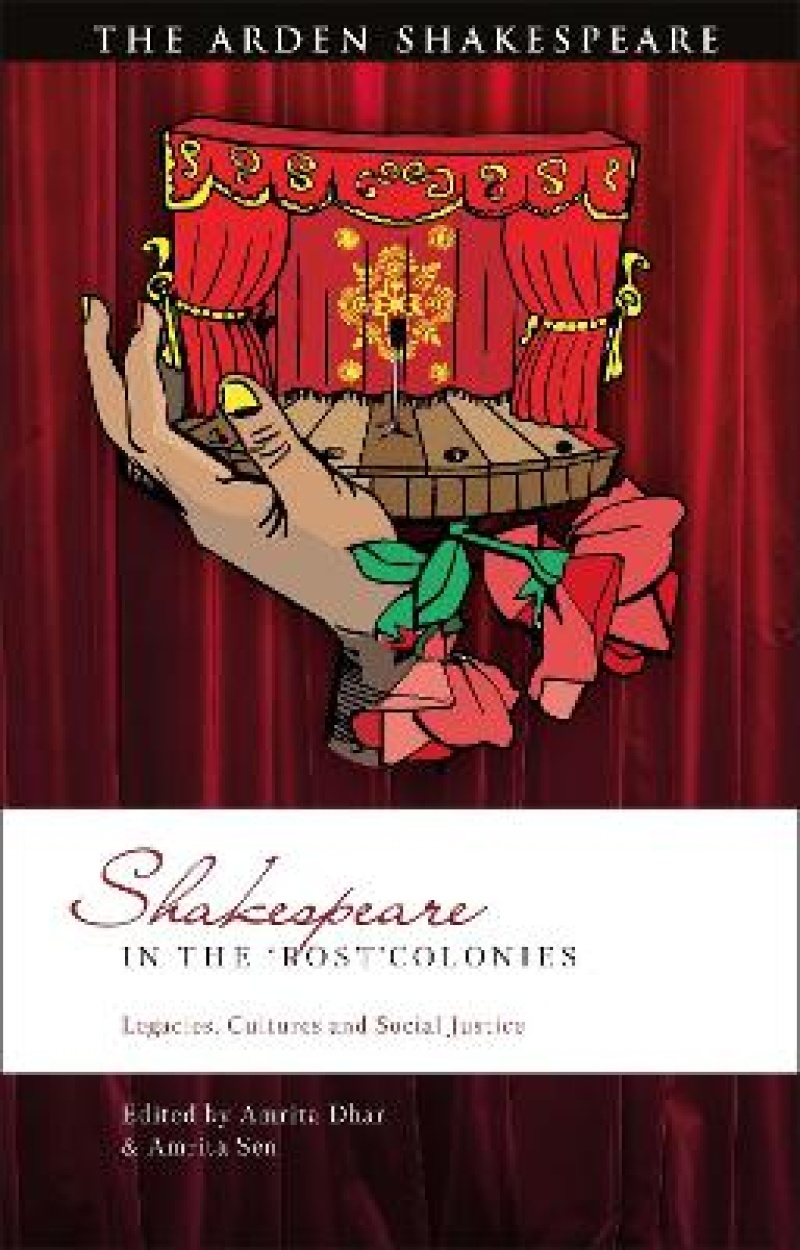Shakespeare in the 'Post'Colonies provides a wide-ranging examination of engagements with and adaptations of Shakespeare in regions that were once under European colonial rule. Arguing for the 'Post'Colonies as a distinct category within Global Shakespeares, this volume explores the reality of 21st-century Shakespeares in geographies of post-colonial and postcolonial inheritance, such as continental Africa, Australasia, the Arab world, the Indian subcontinent, East Asia and the Americas. As former colonies in Asia and Africa cross fifty and even seventy years of political independence, contributors re-examine the presence of Shakespeare in marginalised or politically disenfranchised communities, interrogating how Shakespeare intersects with the internal and global power dynamics of post-independence nations.
The essays cover a rich array of genres ranging from theatrical performances, translations, and cinematic adaptations to classroom strategies. They turn to texts that have often gone ignored and give voice to Shakespeare appropriations by subaltern groups. Essays address questions of race, gender, nationality, indigeneity, caste and class, shedding new light on the diverse range of contemporary Shakespeare engagements across the global ‘Post’Colonies.
Foreword
- Postcolonial Reciprocities, Poonam Trivedi (Delhi University, India)
- Traveling with Global Shakespeares into the Future, Jyotsna Singh (Michigan State University, USA)
Introduction: Amrita Dhar (University of California San Diego, USA) and Amrita Sen (University of Calcutta, India)
Chapter 1. In States Unborn and Accents Yet Unknown: Shakespeare and Australian Indigenous Performance, Margaret Harvey (University of Melbourne, Australia) and David McInnis (University of Melbourne, Australia)
Chapter 2. Reincarnating Barbary: Translating Intersections of Race and Gender in Desdemona and Wesoo Hamlet! Ifeoluwa Aboluwade (University of Bayreuth, Germany)
Chapter 3. Hyperion to a satyr? Shakespeare and Post-Colonial Nostalgia in Aden, Katherine Hennessey (Wenzhou-Kean University, China)
Chapter 4. The Fatal Attraction of Empress Americana: Yamanote Jijosha’s Titus Andronicus as Japan's Postcolonial Allegory - Bi-qi Beatrice Lei (National Taiwan University, Taiwan)
Chapter 5. ‘I am born to tame you, Kate’: Irreverent Submission in a Postcolonial Filipino Taming of the Shrew (2002), Kirsten N. Mendoza (University of Dayton, USA)
Chapter 6. ‘We have also studied him’: Shakespeare and the Dalit Reader, Vijeta Kumar (St. Joseph’s College, India)
Chapter 7. Nationbuilding Through Shakespeare: Ariel in Latin America, Ana Weinberg (De Montfort University, UK)
Chapter 8. Post-9/11 Othello: Representing the Global Post-colony in Iqbal Khan’s 2015 RSC production, Zainab Cheema (Florida Gulf Coast University, USA)
Chapter 9. Whose Side Are You On? Settler Colonial Shakespeare and Indigenous Resistance - Madeline Sayet (Arizona State University, USA)
Afterword: Are We Post-colonial Yet? Alexa Alice Joubin (George Washington University, USA)
Notes
Index
Global Shakespeare Inverted challenges any tendency to view Global Shakespeare from the perspective of ‘centre’ versus ‘periphery’. Although the series may locate its critical starting point geographically, it calls into question the geographical bias that lurks within the very notion of the ‘global’. It provides a timely, constructive criticism of the present state of the field and establishes new and alternative methodologies that invert the relation of Shakespeare to the supposed ‘other’.
Advisory board
Supriya Chaudhuri, Professor Emerita, Department of English, Jadavpur University, India
Chanita Goodblatt, Professor of Foreign Literatures and Linguistics, Ben-Gurion University of the Negev, Israel
Douglas Lanier, Professor of English, University of New Hampshire, United States
Sonia Massai, Professor of Shakespeare Studies, Sapienza University of Rome, Italy
Alfredo Michel Modenessi, Professor of English Literature, Drama and Translation, National Autonomous University of Mexico (UNAM), Mexico
Anne Sophie Refskou, Assistant Professor, Comparative Literature and Rhetoric, Aarhus University, Denmark
Motohashi Tetsuya, Professor of Cultural Studies, Tokyo Keizai University, Japan
Chris Thurman, Director of the Tsikinya-Chaka Centre, University of the Witwatersrand, South Africa
Sandra Young, Professor of English Literary Studies, University of Cape Town, South Africa
Produktdetaljer
Biografisk notat
Amrita Dhar is Assistant Professor of English at Ohio State University, USA.
Amrita Sen is Associate Professor and Deputy Director of UGC-HRDC, University of Calcutta, India. She has co-edited Civic Performance: Pageantry and Entertainments in Early Modern London (2020), and a special issue of the Journal for Early Modern Cultural Studies on 'Alternative Histories of the East India Company' (2017).
